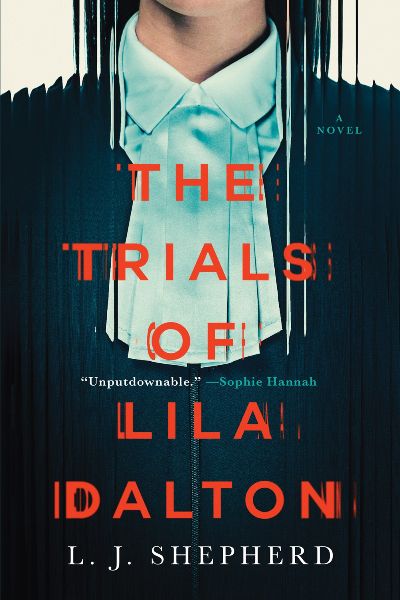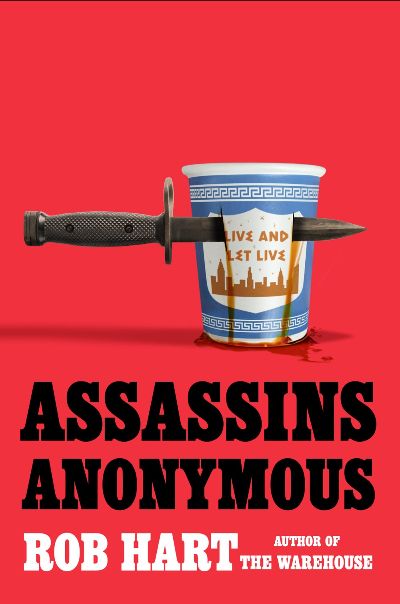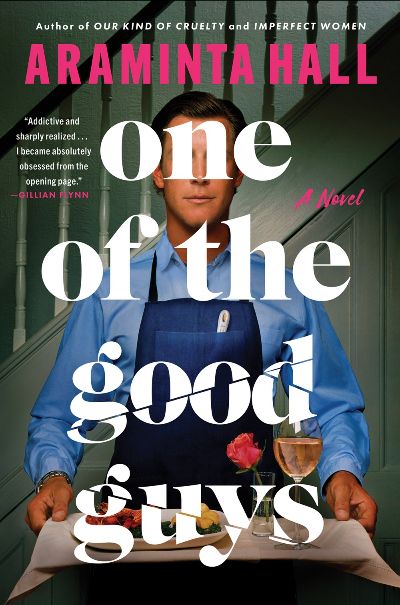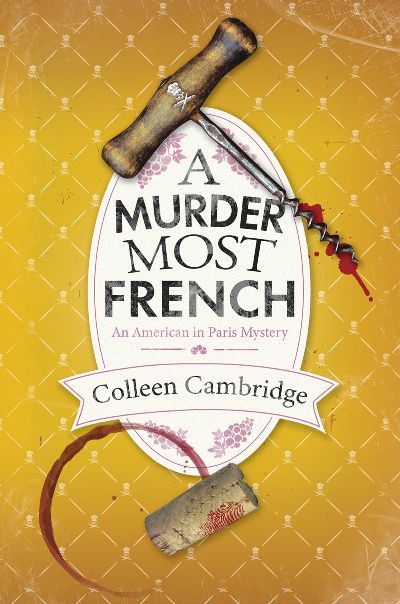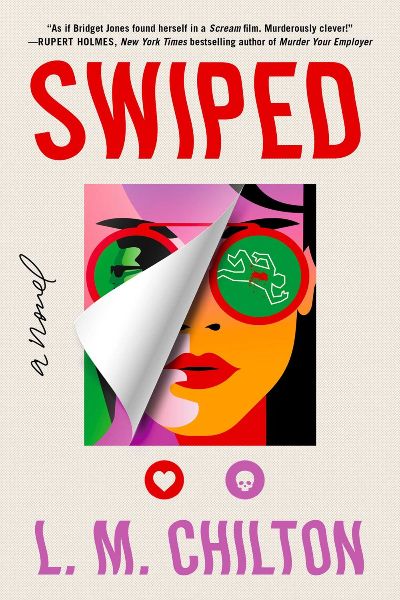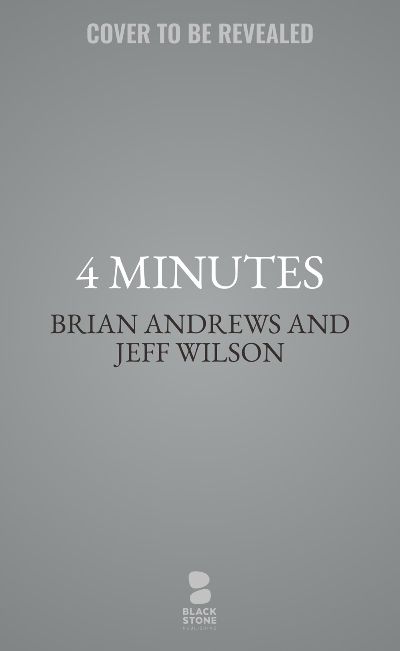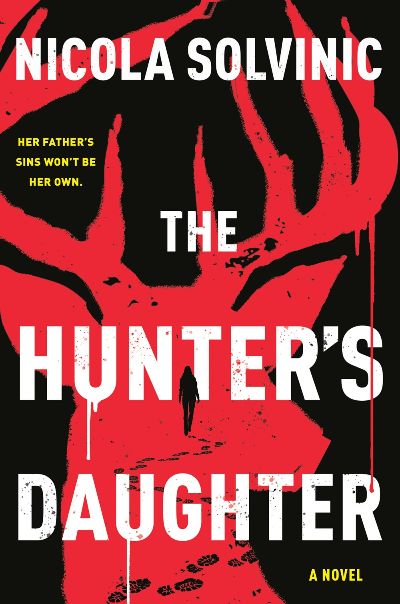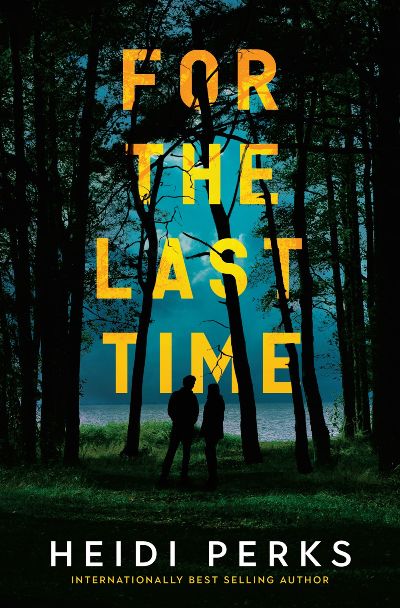It’s great when a series keeps getting better and better, and this latest in the “Vet Mystery” series does exactly that. Veterinarian Peter Bannerman is on vacation with his family in northern Manitoba—lots of hiking and canoeing, mosquitos and dogs. But things quickly go wrong. The gorgeous sled huskies owned by the proprietor of the lodge are poisoned. Then a floatplane crashes into the lake; the pilot, it turns out, has been shot from the ground on the plane’s descent. And if human misbehavior weren’t enough, nature provides a terrifying forest fire that nearly kills the Bannerman family. They seek safety in the lodge along with the other tourists and staff. Here Schott’s (Fifty-Four Pigs) book turns into a locked-room tale as the outside world grows more fearsome while it becomes clearer that the murderer is likely in their midst. Wonderful, unique characters (including Peter’s sniffer dog, Pippin), a dramatic setting, and a brisk plot all make for an excellent mystery.
Book of the Week
This brilliantly disorienting debut takes place on Assumption Island, a cold, rocky British outpost in the north Atlantic. Lila Dalton finds herself in an island courtroom being addressed by an impatient judge who clearly expects her to argue for her client. Lila has no idea how she got to this courtroom, how to be a barrister, what the case is…she doesn’t know anything, including who the stranger in the mirror is. Things take a turn for the (even) worse when she gets anonymous notes telling her that she’d better win acquittal for the murderer she’s representing if she ever wants to see her daughter again (that would be the daughter she didn’t know she had). The various characters working for and against Lila (we’re often unsure which direction a character is leaning, adding to the dark, compelling tale) are well drawn, with each adding complications and drama. Spare but gripping dialog propels the strange story to an appropriately dizzying conclusion. For fans of Hervé Le Tellier’s The Anomaly.
In this remarkable thriller full of heartbreak, humor, and bone-chilling violence, Mark—the world’s most dangerous, and best, killer-for-hire—is trying to get out of the assassin business. Known worldwide as the Pale Horse, he inspires fear among his fellow contract killers wherever he goes. But as the book opens, Mark isn’t going anywhere except for a 12-step group on Manhattan’s Lower East Side, Assassins Anonymous (he’s just received his six-month chip). And Mark has some major amends he needs to make. But at the end of an AA meeting—he’s alone, having stayed to clean up—he’s attacked by a vicious Russian assailant. Who is the attacker, and why is he pursuing Mark? The only way to find out is to track him down, and in no time, Mark, accompanied by his cat, P. Kitty, is off to Singapore then London then back to New York. Is Mark being lured back into the Agency, the organization he previously worked for? Is the attack just revenge, pure and simple? And how will he defend himself and eliminate his perpetrator—without killing him or her? A high-speed thriller that manages to burrow deeply into Mark’s past and present—and the future he dreams of. A wild and hugely entertaining ride.
I want to be a fly on the wall when this explosive drama is discussed in book clubs. The “good guy” whose behavior they will pick apart is Cole Simmonds; he’s recently separated and has left London for the rural English coast. There he’s picking up the pieces from a marriage that went wrong when the couple’s attempts to have a child, including the trials of IVF, were all for nothing. Cole’s wife Mel—he’s dragging his feet on the paperwork that will tie up all the loose ends—now seems to hate him and he can’t understand where it all went wrong. Mel’s point of view, meanwhile, only coincides with Cole’s in that both would agree that they’ve split up. He’s trying to move on and meets Lennie (he insists on calling her Leonora, our first hint at his controlling ways), an artist who also seems like a lonely soul. Both are pulled into the fray when young women on a nationally publicized walk to highlight the problem of male violence go missing near Cole’s home. The social-media firestorm ignited by all this will be matched by the conversations in those book clubs I want to lurk in, as Hall looks at toxic masculinity from every angle: the oh-so-innocent man who’s only controlling because he cares so much, the enraged men commenting about the case online, the system that ridicules women if they wait too long to report a sexual crime while torturing them once they do report. A gripping and controversial suspense.
Hard to imagine, but this sophomore offering in the American in Paris series, set in 1950, is even better than the debut (Mastering the Art of French Murder). It is wonderfully detailed in its description of Paris during the Occupation and subsequent Liberation; rich in characterization, especially of the larger-than-life Julia Child (Les oeufés brouilles with fresh tarragon! Magnifique!) and her buddy, the intrepid expat and amateur investigator Tabitha Knight; and driven by a strong mystery that takes us from L‘Ecole de Cordon Bleu to the unsettling world of the Paris catacombs. Did I forget the suave Inspecteur Merveille of the ocean-gray eyes, whom Tabitha is, I assure you, in no way attracted to? In this volume, the crime comes in the form of rare and expensive bottles of wine that have been poisoned with cyanide then delivered as presents to unwitting recipients. To unearth the criminal, Tabitha must learn about France’s wine industry and the efforts to hide the best vintages from looting by the Germans, all while managing to work with Merveille, who has little more than disdain for Mademoiselle Knight. The end comes as a quick surprise. A perfect match for fans of cozies, traditional mysteries, or fiction set in the post-war years.
Gwen has tossed aside her long-term boyfriend—why she dumped him is a bit of a mystery in itself—quit her lucrative job, and is now running a failing food truck. The plan was for her and the boyfriend to head off to festivals over the U.K., dispensing coffee. Instead, Gwen is moping about, drinking too much lousy wine, helping her roommate/best friend prepare for her wedding (barf!), doing absolutely nothing to prepare for living alone, oh, and dating guys off Connector, the “dating app du jour,” at a rather rapid pace. Gwen has a bit of an addiction to Connector, and her hilarious and droll take on men and dating is reminiscent of Phoebe Waller-Bridge’s character Fleabag. Until the most curious thing happens: there’s a series of murders in her town, all of 30-something year old males, and all—you guessed it!—former Connector dates of Gwen. In no time, the cops are in her face (and deep into her Connector account), observing her every move, and generally acting like she’s their number-one suspect. Pluckish Gwen does the one thing she can do: try to solve the murders herself. Anyone who’s taken a dip in the world of online dating will find much to enjoy here, while everyone will appreciate Chilton’s marvelous tone, dialogue, and humor. Take this wonderful debut on a date, you won’t be disappointed.
Special Operations Chief Tyler Brooks gets a chance to lead a secret team of operatives in this tense and mind-blowing thriller. The Task Force Omega squad has access to a top-secret device that can move anyone on the team up to 28 days in the future for four minutes, and then they are returned. They cannot change anything they see but can gather intel to research once they return, hopefully stopping the incident from happening. Brooks does not know that a particular op that came together before his recruitment has a soldier with similar skills who is seeking vengeance and who wants Brooks dead. Events swerve drastically when the team jumps into the future and discovers a nuclear-decimated landscape. Can Brooks lead his team to find answers, even with a hidden target on his back? Andrews and Wilson are the best in the business at telling stories involving military operations while emphasizing the human side of warfare. They take a sci-fi concept and make it realistic and believable. 4 Minutes is arguably the best book they have written.
Subterfuge and supernatural elements infuse this dark, absorbing debut. Our protagonist is Midwestern police detective Anna Koray, who’s had a relatively staid career until she makes the mistake of confronting a violent perpetrator without backup. She kills him, but is shot herself in the process. When recovering, she’s required to undertake counseling; at the same time, she pushes herself into the investigation of a serial killer whose horrifying work resembles that of her father, who years ago was executed for his murder of multiple women as sacrifices to a forest god. Both Anna’s colleagues and the doctor she’s in a burgeoning relationship with have no idea that she spent her childhood in thrall to the Forest Strangler. Anna herself doesn’t even have all the details, which were sealed away in her subconscious by a manipulative therapist whom she now sees for the reverse process, setting in motion an emotional and dangerous roller coaster of unraveling secrets and treacherous confrontations. A cold-case podcaster adds a moral dilemma to the exciting tale—when is it better to leave the truth buried? Readers who enjoy a wilderness thriller, such as Elizabeth Hand’s Hokuloa Road or Paul Doiron’s Dead Man’s Wake, will appreciate this story.
At first, this novel seems to be a predictable, mildly entertaining thriller. Erin and Will take themselves off to marriage counseling because something has gone wrong, at least for Erin, who is suddenly putting her husband at arm’s length. But what’s the source of the problem? Even their counselor, Maggie, becomes consumed trying to understand what has gone awry in their marriage, especially when Will is, annoyingly, nearly the perfect man. Then, out of nowhere, Perks drops a clue that made my head spin, cranks up the narrative’s pace, and pulls us deeper into the disturbing past of Erin and Maggie. Since this is from multiple perspectives, and jumps skillfully around the narrative time-line, readers will have fun trying to put this complex, fractured and totally compelling story together. A perfect read for fans of Lisa Jewell and B.A. Paris.
This debut novel should come with blood-pressure pills. The tension at first comes from strangeness: Mother; Father; their daughter, Juno; and son, Boy live a harsh, homesteading life alone on an island. Is it the present day? What part of the world are they in? Is the mortal danger from outsiders that the parents warn about real? The timing element is all that’s clear for a good portion of the book: it’s the current day, but apart from visits from the mailman who comes from the mainland, during which Juno and Boy must hide from view, the rest is unknown. Bit by bit, teen Juno’s desire for freedom and her determination to find out more about their situation despite her sinister, violent parents’ “seven commandments” (including “We must always kill quickly and painlessly”) ramp up the fear to a terrifying do-or-die scene. Readers will be rapt as they race to the end to find out who survives this nightmare that’s effectively mixed with a fairytale motif echoing one of Juno’s favorite stories. Menger’s previous work is in film, TV, and audiobooks: try his Audible Originals Monster 1983 and Ghostbox while you wait for this gripping thriller.


